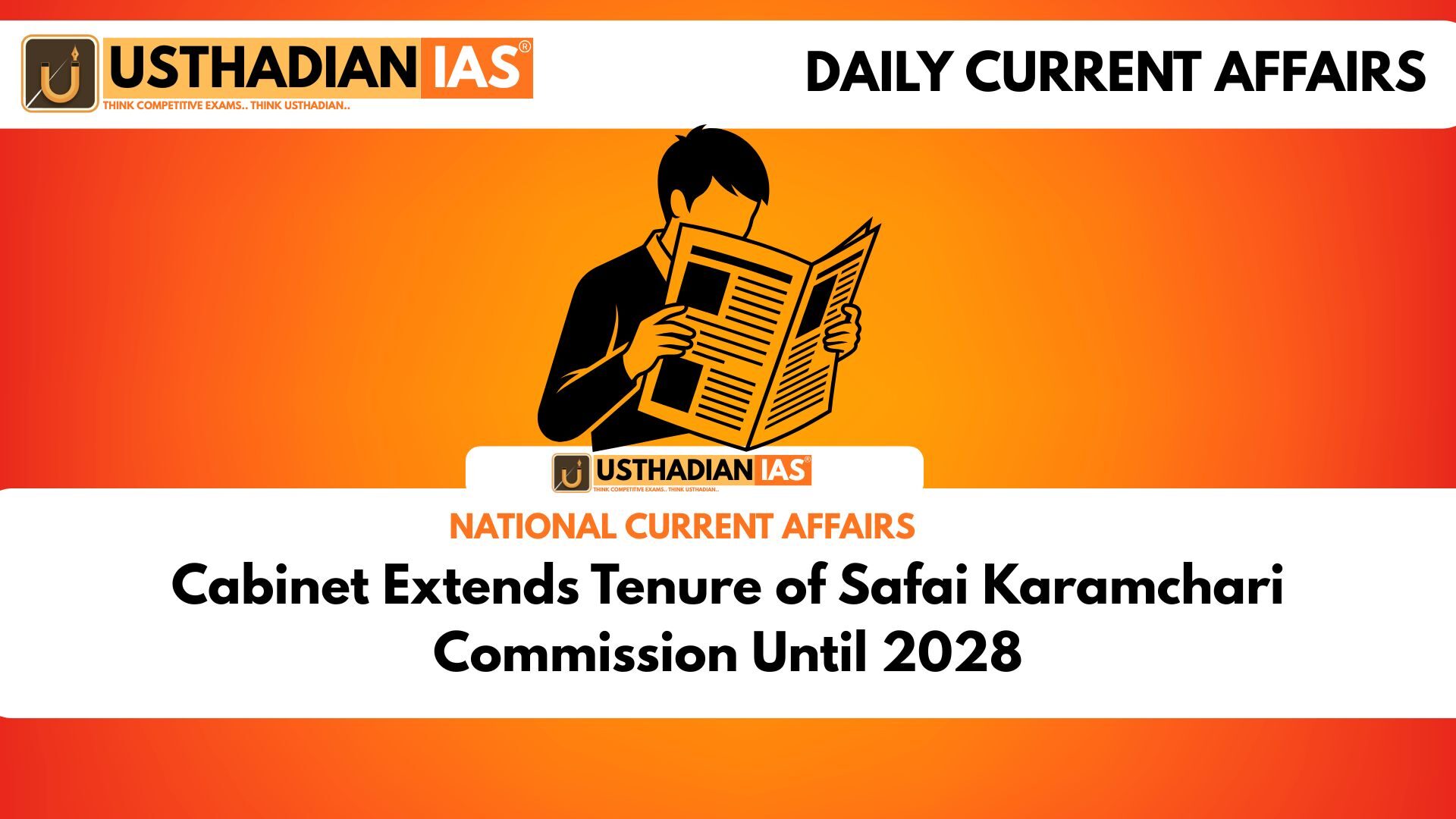NCSK Gets a Three-Year Extension
Cabinet Extends Tenure of Safai Karamchari Commission Until 2028: The Union Cabinet, under the leadership of Prime Minister Narendra Modi, has approved the extension of the National Commission for Safai Karamcharis (NCSK) until March 31, 2028. This move renews the government’s commitment to safeguarding the interests of sanitation workers across India. With this decision, the commission’s tenure, which was earlier set to end in March 2025, will now continue for another three years, ensuring continuity in welfare initiatives aimed at eradicating manual scavenging and improving working conditions.
What is the Role of NCSK?
The NCSK was established in 1993 with a mandate to promote the welfare of Safai Karamcharis, address grievances, and oversee the implementation of rehabilitation and safety measures. Though it was originally a statutory body, the commission now operates as a non-statutory one after the lapse of the original act. Its core responsibilities include evaluating social justice schemes, monitoring health and safety standards, recommending policy changes, and addressing complaints related to the manual scavenging ban under the 2013 Act. The commission acts as an advisory body to both the central and state governments.
Why the Extension Is Crucial
Despite legal measures banning manual scavenging, its remnants persist in parts of the country, especially in unsafe septic tank and sewer cleaning. The extension of NCSK’s tenure reflects the government’s intent to pursue complete mechanisation of sanitation work and protect workers from hazardous tasks. The commission also plays a key role in ensuring rehabilitation schemes reach eligible families. The renewed tenure comes with an allocated budget of ₹43.68 crore, signifying a serious financial commitment to improving the lives of sanitation workers.
Past Tenure Extensions and Funding
The commission’s tenure has seen several extensions since its creation. In 2016, the government extended its functioning by three years, with a smaller budget of ₹13.08 crore. The present extension not only continues its operations but also reflects an increase in allocated funds, which indicates a greater focus on ground-level implementation and the strengthening of institutional support mechanisms for sanitation workers.
What Lies Ahead for Sanitation Reforms
With its term extended, the NCSK is expected to scale up its impact by reviewing more cases, resolving grievances faster, and providing stronger advocacy for Safai Karamcharis. Its efforts will be directed toward achieving 100% mechanisation of high-risk sanitation work, monitoring the enforcement of rehabilitation schemes, and supporting policies that integrate sanitation workers into mainstream livelihoods with dignity and safety. The commission’s presence remains vital to ensure that welfare policies translate into real change on the ground.
STATIC GK SNAPSHOT
| Topic | Details |
| Commission Name | National Commission for Safai Karamcharis (NCSK) |
| Established | 1993 |
| Current Tenure Extension | Extended till March 31, 2028 |
| Previous Term End | March 31, 2025 |
| Primary Purpose | Welfare and rehabilitation of sanitation workers |
| Key Legislation Monitored | Prohibition of Employment as Manual Scavengers Act, 2013 |
| Budget for Current Extension | ₹43.68 crore |
| Implementing Authority | Union Cabinet, Government of India |
| Headquarters | New Delhi |
| Statutory Status | Non-statutory since lapse of original Act |








